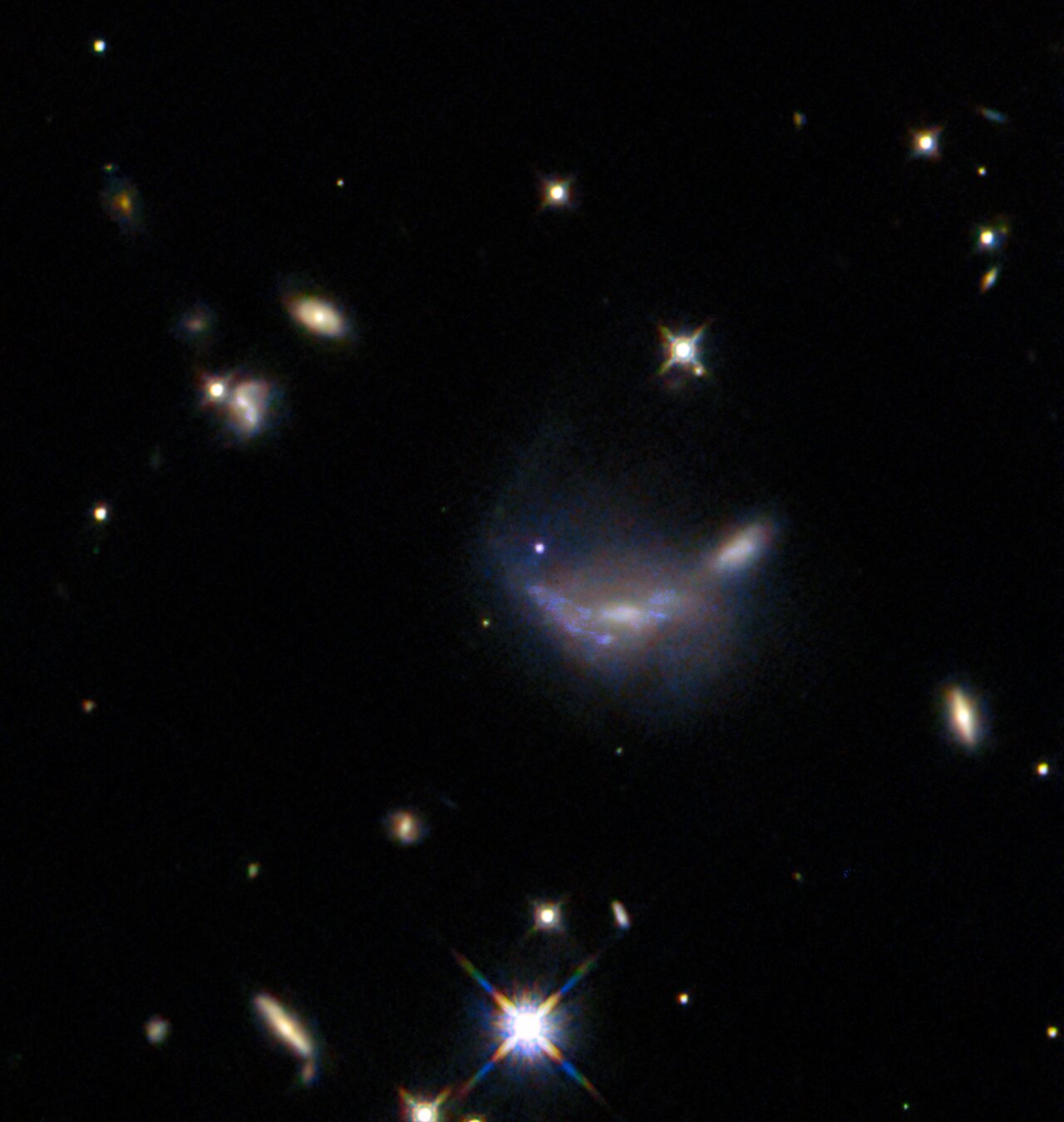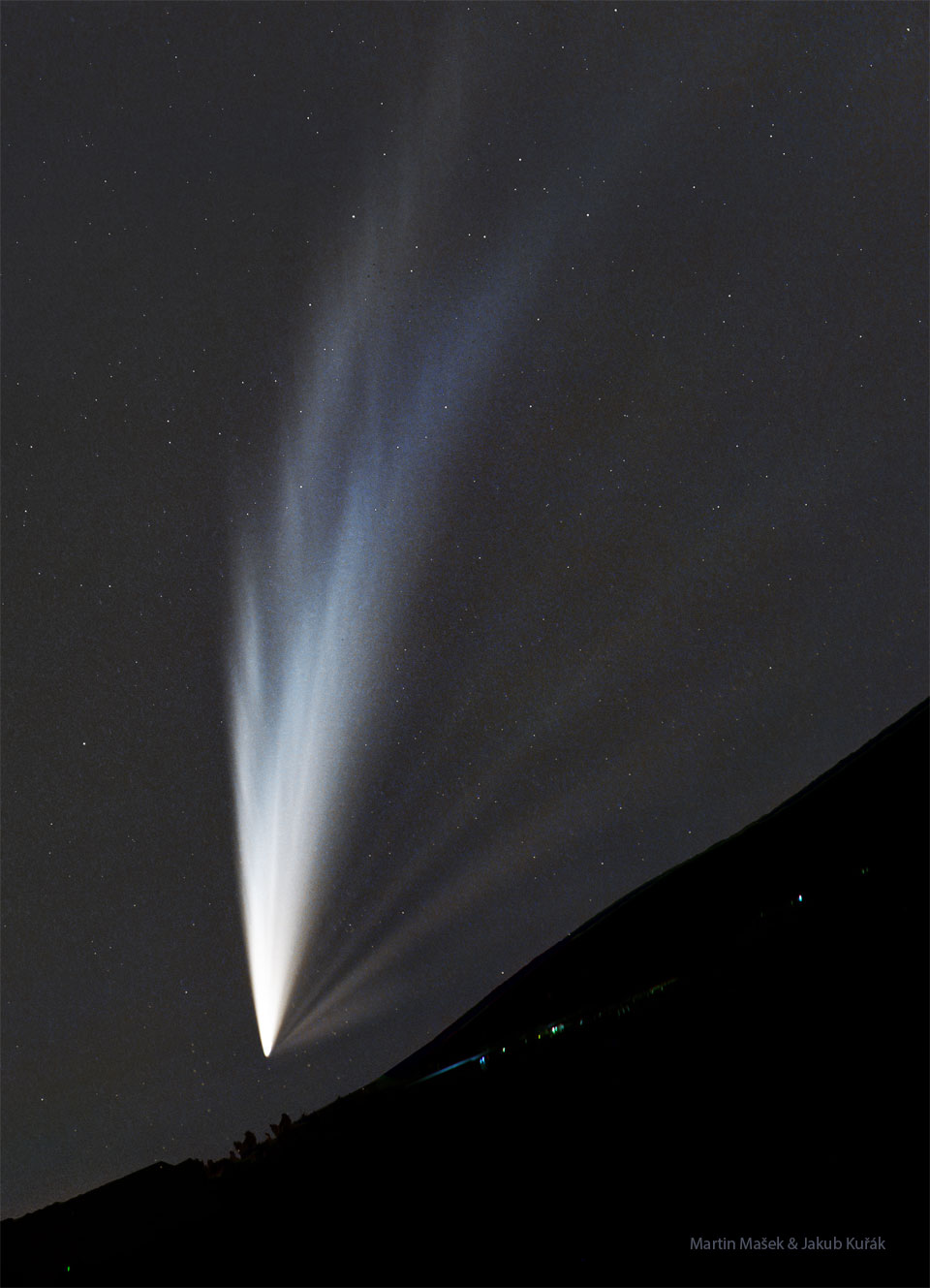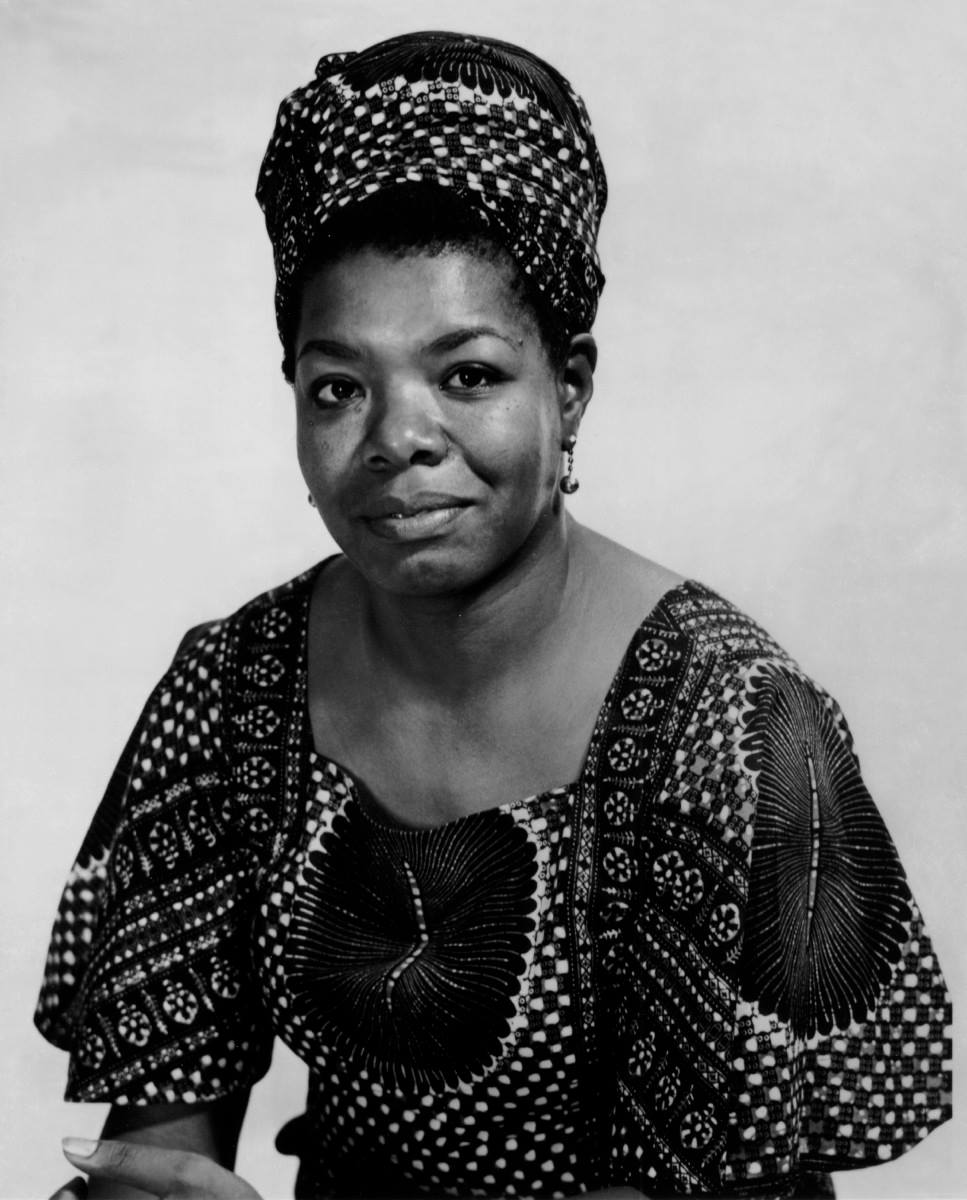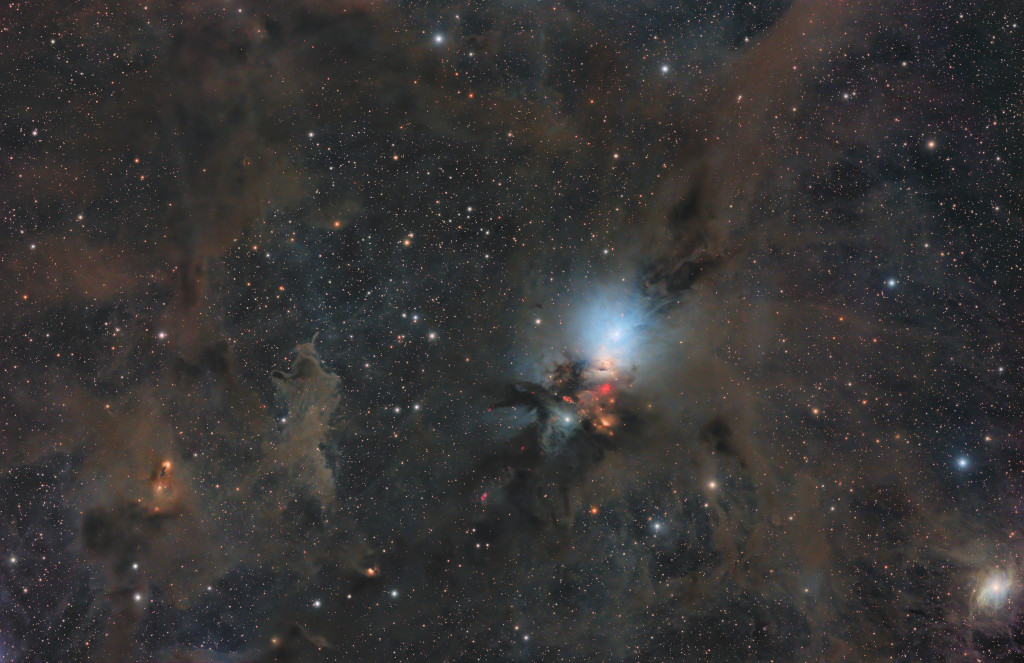Blog
The subject of this NASA/ESA Hubble Space Telescope Picture of the Week is a supernova-hosting galaxy located about 600 million light-years away in the constellation Gemini. This picture was taken roughly two months after a supernova named SN 2022aajn was discovered in this galaxy. The supernova is visible as a blue dot at the centre of the image, brightening the hazy body of the galaxy.
Other than the announcement of its discovery in November 2022, SN 2022aajn has never been the subject of published research. Why, then, would Hubble observe this supernova? SN 2022aajn is what’s known as a Type Ia supernova, which results from the explosion of the core of a dead star. Supernovae of this type help astronomers measure the distance to faraway galaxies. This is possible because Type Ia supernovae are thought to be of the same intrinsic luminosity — no matter how bright they seem from Earth, they put out the same amount of light as other Type Ia supernovae. Thus, by comparing the observed brightness to the expected brightness, researchers can calculate the distance to the supernova and its host galaxy.
This seemingly simple measurement method is complicated by cosmic dust. The farther away a supernova is, the fainter and redder it will appear — but intergalactic dust can make a supernova appear fainter and redder as well. To understand this complication, researchers will use Hubble to survey a total of 100 Type Ia supernovae in seven wavelength bands from the ultraviolet to the near-infrared. This image combines data taken at four infrared wavelengths. Infrared light passes through dust more easily than visible or ultraviolet light. By comparing the brightness of the sampled supernovae across different wavelengths, researchers can disentangle the effects of dust and distance, helping to improve measurements of galaxies billions of light-years away and even the expansion of our Universe.
[Image Description: In the exact centre a supernova is seen as a small but bright blue dot. It lies atop the outer disc of a hazy-looking galaxy, which has a somewhat warped shape. Around this are a number of much more minor galaxies visible as glowing discs, and some points of light that are stars near to us, on a black background. X-shaped spikes around each star are optical artefacts from the telescope.]

more...
Wolfgang Amadeus Mozart (27 January 1756 – 5 December 1791) was a prolific and influential composer of the Classical period. Despite his short life, his rapid pace of composition and proficiency from an early age resulted in more than 800 worksrepresenting virtually every Western classical genre of his time. Many of these compositions are acknowledged as pinnacles of the symphonic, concertante, chamber, operatic, and choral repertoire. Mozart is widely regarded as one of the greatest composers in the history of Western music, with his music admired for its “melodic beauty, its formal elegance and its richness of harmony and texture”.
Born in Salzburg, Mozart showed prodigious ability from his earliest childhood. At age five, he was already competent on keyboard and violin, had begun to compose, and performed before European royalty. His father took him on a grand tour of Europe and then three trips to Italy. At 17, he was a musician at the Salzburg court but grew restless and travelled in search of a better position. Mozart’s search for employment led to positions in Paris, Mannheim, Munich, and again in Salzburg, during which he wrote his five violin concertos, Sinfonia Concertante, and Concerto for Flute and Harp, as well as sacred pieces and masses, the motet Exsultate Jubilate, and the opera Idomeneo,among other works.
While visiting Vienna in 1781, Mozart was dismissed from his Salzburg position. He stayed in Vienna, where he achieved fame but little financial security. During Mozart’s early years in Vienna, he produced several notable works, such as the opera Die Entführung aus dem Serail, the Great Mass in C minor, the “Haydn” Quartets and a number of symphonies. Throughout his Vienna years, Mozart composed over a dozen piano concertos, many considered some of his greatest achievements. In the final years of his life, Mozart wrote many of his best-known works, including his last three symphonies, culminating in the Jupiter Symphony, the serenade Eine kleine Nachtmusik, his Clarinet Concerto, the four operas The Marriage of Figaro, Don Giovanni, Così fan tutte and The Magic Flute and his Requiem. The Requiem was largely unfinished at the time of his death at age 35, the circumstances of which are uncertain and much mythologised.
I. Allegro; sonata-allegro G-major 0:00 – 8:44 II. Romanza, andante C major 8:45 – 15:00 III. Alegretto; minuet and trio G-major 15:00 – 17:15 IV. Allegro; sonata-rondo G-major 17:15 – end
more...Robert Hutcherson (January 27, 1941 – August 15, 2016 LA,CA) was an American jazzvibraphone and marimba player. “Little B’s Poem”, from the 1966 Blue Note album Components, is one of his best-known compositions. Hutcherson influenced younger vibraphonists including Steve Nelson, Joe Locke, and Stefon Harris.
He made his recording debut on August 3, 1960, cutting two songs for a 7-inch single with the Les McCann trio for Pacific Jazz (released in 1961), followed by the LP Groovin’ Blue with the Curtis Amy-Frank Butler sextet on December 10 (also released by Pacific Jazz in 1961). In January 1962, Hutcherson joined the Billy Mitchell–Al Grey group for dates at The Jazz Workshop in San Francisco and Birdland in New York City (opposite Art Blakey). After touring with the Mitchell–Grey group for a year, Hutcherson settled in New York City (on 165th street in The Bronx) where he worked part-time as a taxi driver, before fully entering the jazz scene via his childhood friend, bassist Herbie Lewis.
more...Elmore James (Brooks; January 27, 1918 – May 24, 1963 Richland, Holmes County, MS) was an American blues guitarist, singer, songwriter, and bandleader. Noted for his use of loud amplification and his stirring voice, James was inducted into the Rock and Roll Hall of Fame in 1992. His slide guitar technique earned him the nickname “King of the Slide Guitar”.
He began recording with Trumpet Records in nearby Jackson in January 1951, first as a sideman again for Sonny Boy Williamson II and for their mutual friend Willie Love and possibly others. He made his debut as a session leader in August that year recording a Robert Johnson composition, “Dust My Broom“, which was a surprise R&B hit in 1952. His backing musicians became known as the Broomdusters.
James broke his contract with Trumpet Records to sign with the Bihari brothers through their scout Ike Turner, who played guitar and piano on a couple of his early Bihari recordings. His “I Believe” was a hit a year later. During the 1950s he recorded for the Bihari brothers’ Flair Records, Meteor Records, and Modern Records; he also recorded for Chess Records and Mel London‘s Chief Records. He played lead guitar on Big Joe Turner‘s 1954 top 10 R&B hit “TV Mama”.
more...C/2024 G3 (ATLAS) has developed several long and intricate tails visible from Earth’s southern hemisphere over the past two weeks. Many observers reported seeing the impressive comet without any optical aid above the western horizon just after sunset. At least six different tails appear in the featured image captured five days ago from the dark skies above Paranal Observatory in Chile. One possible cause for the multiple tails is dust and gas being expelled from the comet’s rotating nucleus. The outward push of the Sun‘s complex solar wind may also play a role. The huge iceberg-like nucleus of Comet ATLAS appears to have broken up near its closest approach to the Sun two weeks ago. Unfortunately, Comet ATLAS and its tails are expected to fade significantly over the coming weeks.

Huey Pierce “Piano” Smith (January 26, 1934 – February 13, 2023 NOLA) was an American R&B pianist and session musician whose sound was influential in the development of rock and roll.
His piano playing incorporated the boogie-woogie styles of Pete Johnson, Meade Lux Lewis, and Albert Ammons, the jazz style of Jelly Roll Morton and the R&B style of Fats Domino. Steve Huey of AllMusic noted that “At the peak of his game, Smith epitomized New Orleans R&B at its most infectious and rollicking, as showcased on his classic signature tune, “Rockin’ Pneumonia and the Boogie Woogie Flu“.
more...Clement Seymour “Coxsone” Dodd CD (26 January 1932 – 4 May 2004) was a Jamaican record producer who was influential in the development of ska and reggae in the 1950s, 1960s and beyond.
He was nicknamed “Coxsone” at school due to his talent as a cricketer (his friends compared him to Alec Coxon, a member of the 1940s Yorkshire County Cricket Clubteam).
more...Stéphane Grappelli (26 January 1908 – 1 December 1997) was a French jazz violinist. He is best known as a founder of the Quintette du Hot Club de France with guitarist Django Reinhardt in 1934. It was one of the first all-string jazz bands. He has been called “the grandfather of jazz violinists” and continued playing concerts around the world well into his eighties.
For the first three decades of his career, he was billed using a gallicised spelling of his last name, Grappelly, reverting to the Italian spelling Grappelli in 1969. The latter is used when referring to the violinist, including reissues of his early work.
more...

Clouds of stardust drift through this deep skyscape, across the Perseus molecular cloud some 850 light-years away. Dusty nebulae reflecting light from embedded young stars stand out in the nearly 4 degree wide field of view. With a characteristic bluish colorreflection nebula NGC 1333 is prominent near center. Hints of contrasting red emission from Herbig-Haro objects, the jets and shocked glowing gas emanating from recently formed stars, are scattered across the dusty expanse. While many stars are forming in the molecular cloud, most are obscured at visible wavelengths by the pervasive dust. The chaotic environment surrounding NGC 1333 may be similar to one in which our own Sun formed over 4.5 billion years ago. At the estimated distance of the Perseus molecular cloud, this cosmic scene would span about 80 light-years.

Jamesetta Hawkins (January 25, 1938 – January 20, 2012), known professionally as Etta James, was an American singer and songwriter. Starting her career in 1954, James frequently performed in Nashville’s famed R&B clubs, collectively known as the Chitlin’ Circuit, in the 1940s, 1950s, and 1960s. She sang in various genres, including gospel, blues, jazz, R&B, rock and roll, and soul, and gained fame with hits such as “The Wallflower” (1955), “At Last” (1960), “Something’s Got a Hold on Me” (1962), “Tell Mama“, and “I’d Rather Go Blind” (both 1967). She faced a number of personal problems, including heroin addiction, severe physical abuse, and incarceration, before making a musical comeback in the late 1980s with the album Seven Year Itch (1988).
James’s deep and earthy voice is considered to have bridged the gap between R&B and rock and roll. She won three Grammy Awards for her albums (2005 – Best Traditional Blues Album for Blues to the Bone; 2004 – Best Contemporary Blues Album for Let’s Roll; and 1995 – Best Jazz Vocal Performance, Female for Mystery Lady: Songs of Billie Holiday) and 17 Blues Music Awards. She was inducted into the Rock and Roll Hall of Fame in 1993, the Grammy Hall of Fame in 1999, and the Blues Hall of Fame in 2001. She also received the Grammy Lifetime Achievement Award in 2003.Rolling Stone magazine ranked James number 22 on its 2008 list of the “100 Greatest Singers of All Time”; she was also ranked number 62 in its list of the “100 Greatest Artists of All Time“. Billboard magazine’s 2015 list of the “35 Greatest R&B Artists Of All Time” also included James, whose “gutsy, take-no-prisoner vocals colorfully interpreted everything from blues and R&B/soul to rock n’roll, jazz and gospel.” The Rock and Roll Hall of Fame named her “one of the greatest voices of her century” and “forever the matriarch of blues.
more...Antônio Carlos Brasileiro de Almeida Jobim (25 January 1927 – 8 December 1994), also known as Tom Jobim
, was a Brazilian composer, pianist, guitarist, songwriter, arranger, and singer. Considered as one of the great exponents of Brazilian music, Jobim merged samba with cool jazz in the 1960s to create bossa nova, with worldwide success. As a result, he is regarded as one of the fathers of bossa nova, and as one of the most-celebrated songwriters of the 20th century.
Jobim was a primary force behind the creation of the bossa nova style, and his songs have been performed by many singers and instrumentalists internationally since the early 1960s.
In 1965, the album Getz/Gilberto was the first jazz record to win the Grammy Award for Album of the Year. It also won Best Jazz Instrumental Album – Individual or Group and Best Engineered Album, Non-Classical. The album’s single “Garota de Ipanema (The Girl from Ipanema)“, composed by Jobim, has become one of the most recorded songs of all time, and the album won the Record of the Year. Jobim composed many songs that are now included in jazz and pop standard repertoires. “Garota de Ipanema” has been recorded over 240 times by other artists. His 1967 album with Frank Sinatra, Francis Albert Sinatra & Antônio Carlos Jobim, was nominated for Album of the Year in 1968.
more...
Moses “Whispering” Smith (January 25, 1932 – April 28, 1984) was an American blues harmonicist and singer. He recorded tracks including “A Thousand Miles from Nowhere” and “Texas Flood” and worked with Lightnin’ Slim and with Silas Hogan. He was inducted into the Louisiana Blues Hall of Fame.
Smith was born in Union Church, Mississippi.
In the 1960s, Smith played harmonica on recordings by the swamp blues notables Lightnin’ Slim and Silas Hogan, before he was able to record some tracks of his own. At this time he worked with the record producer J. D. “Jay” Miller, based in Crowley, Louisiana, and his recordings were released by Excello Records. His singles included the songs “Mean Woman Blues”, and “Don’t Leave Me Baby” and the B-sideinstrumental tracks “Live Jive” and “Hound Dog Twist”.
more...More Posts
- Paul Motian
- Cecil Taylor
- World Music Kyenkyen Bi Adi M’awu
- Daily Roots Rupie Edwards
- Echos of Freedom H.P. Lovecraft
- Cosmo NGC 5530
- Lee Oskar
- Paul McCandless
- Boogie Bill Webb
- Carol Kaye
- Georg Philipp Telemann
- Steve Kuhn
- World Music Elana Sasson · Matthieu Saglio
- Daily Roots Cornell Campbell
- Cosmo Vela SNR
- Chaka Khan
- David Grisman
- Robert Cage
- Louisiana Red
- Stick McGhee
